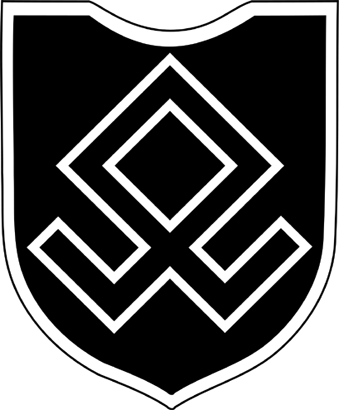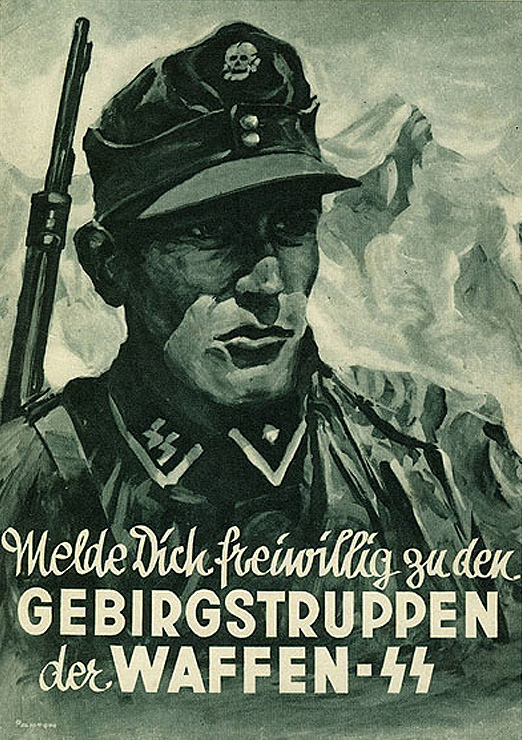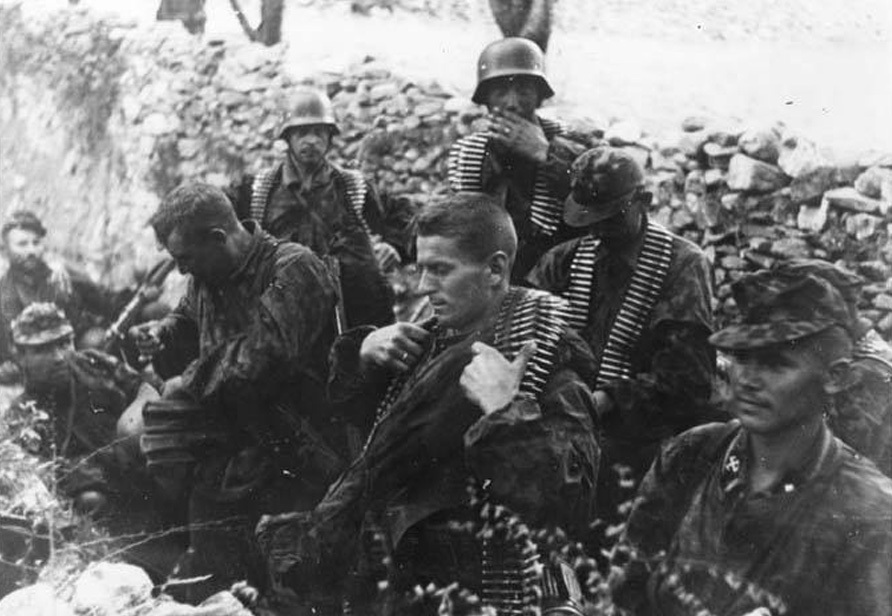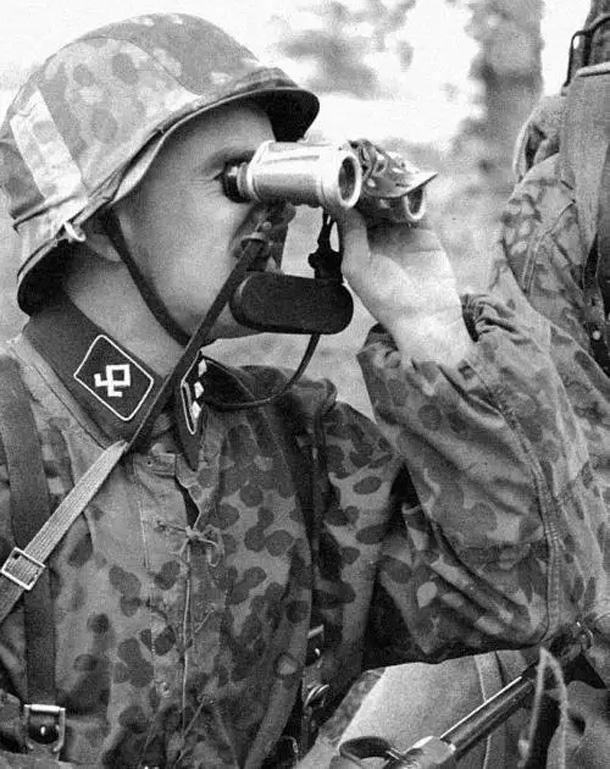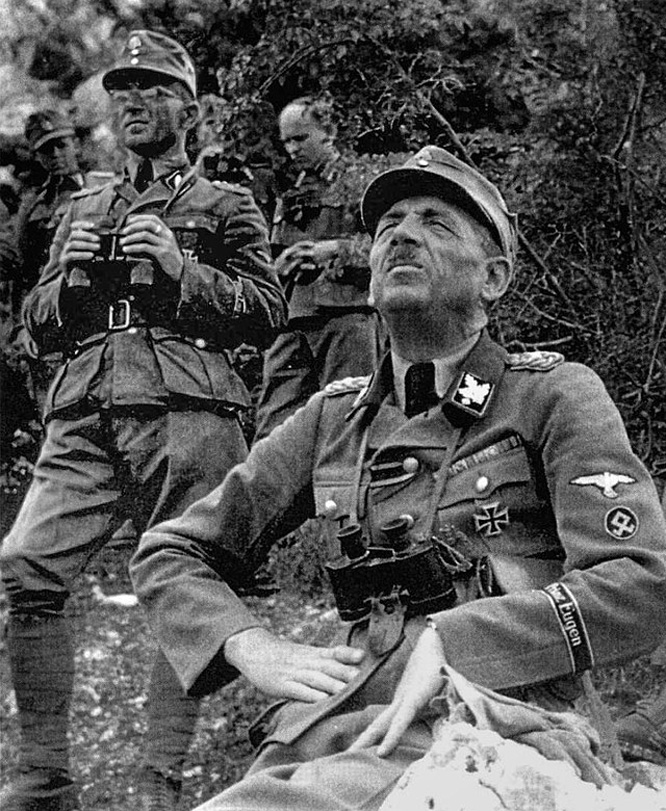Ingo: Well I can not speak about the entire Waffen-SS; we were only a small piece of the pie. Like I said, we faced different groups who were enraged by propaganda and believed they were defending their borders and ideas. We had very good relations with the people we came across who saw us as no threat to their livelihood.
When it came to the fighting, it was severe, and it involved civilians, largely by their choice. I will say there were a couple of times where an attack appeared to have killed people who were not involved. In one case we attacked a heavily fortified town, and the partisans locked away those who did not want to fight.
Shells and machine gun fire started a fire that burned them all and the partisans made no effort, it appeared, to help them. Another case was almost the same, except there were survivors who told us the partisans forced them into a small church, and we shelled it, causing a fire. We took the town quickly and opened the locked doors letting the survivors out.
I can tell you with honesty we committed no crimes or murders like the papers say. The crime no one talks about is what happened to all the Volk Germans who lived in the Balkans and above. They were all expelled after the war and countless died. There are mass graves of Germans and our allies all over the land.
Men, women and children were butchered after the war by the blood thirsty reds, and their allied 'patriots' who hated with zeal. They then concocted stories to blame us for all the deaths in the war; they did this to take attention away from the claims of their crimes made right after the war.
What better way to remove your guilt than by blaming your opponent for everything. They used their comrades and allies as witnesses and showed some destroyed villages as somehow proof of German brutality. No one thinks to ask for the context of a battle or the aftermath, they just believe whatever the news or papers say to believe.
How did you make your way to Ohio?
Ingo: Well that is a story in itself. The division surrendered at war's end to mostly partisan forces. They sent out riders to say all would receive fair treatment, and we believed them as the fighting ended. We had nothing to worry about on our end as we had fought with honor and chivalry.
I think it was in mid May of '45 that they started to separate us based on rank, regiment, and the region where we came from. It was now that we started to see what 'humane treatment' to expect and we saw beatings and shootings. This was not good, and they put me on a truck with some fellows who were from my area, saying we were going to be interrogated.
I remember our guard said to keep our heads down or we will be shot. I just happened to look and see as we passed a clearing that showed some people who had been shot. I could make out a large group lying close to each other, and I saw a brown uniform going up to one and shooting it.
This unnerved me for the first time; I knew we were going to be executed. I made a plan that when the truck rounded a curve I would get up and jump off. I had my chance on a very tight road with many trees; I jumped up, jumped on the seat, then grabbed the rail and let myself drop to the ground.
I could not believe that no one really noticed or said anything, I ran into the woods, and the truck stopped, but I was running downhill so they did not even bother to pursue. It was very warm so I made my way to the nearest village I found and went to a farm. Farmers usually were for us and were loyal.
I met the farmer's daughter in the field, she was watching her flock. I asked her if partisans were nearby and she said no. I was taken in, given food and old used farm clothes. I smelled and looked a sight, but it helped me. They told me it was too risky to stay so they wrote me a map, gave me a canteen and food and wished me well.
I was able to make it to the coast, then told the police I was a political prisoner who had been freed and wanted to go to Greece, they gave me money, a pass, and put me on a boat. From there I was able to make it to Spain, where the sentiment was much better for us. Franco was an ally of Hitler.
I was able to work on a farm by Madrid and to save money. I wrote home and learned the Soviets took the area and were forcing all Germans out. My family had friends in Karlsruhe so they were going there. They wrote when they arrived, saying the trip was bad, my parents both were beaten by a mob going through Czechoslovakia. They made it to Germany with nothing but their clothes on their backs.
I stayed in Spain, as I could not be hunted down there. Rumors were all over saying that my comrades were all dead or sent to Siberia. I met another SS man from the Nordland Division. He told me he had family in the states, and I should move with him. I agreed. We had the money, so we took a boat to New York.
I left the past behind me, and moved to a German village here. Many Germans were in New York, and said Columbus, Ohio had a large German community, so I would fit in. I never mentioned my service time, only that my pass said I was a political prisoner. I had to do whatever it took to survive. So here we are, I met my wife at Saint Mary's, she was a postal girl from Bremen.
She moved to get away from the occupation; she said if they are occupying us, then I will occupy them. So there you have my story young man, very few people know what I told you.

